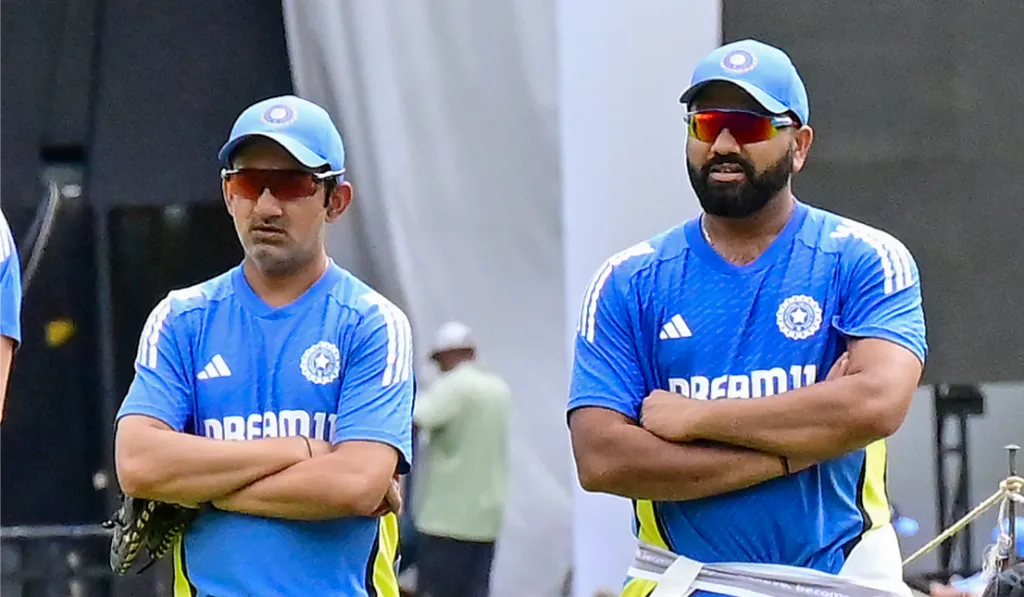In the first Test match against New Zealand held in Bengaluru, Indian captain Rohit Sharma acknowledged his miscalculation in decision-making at the toss after his team encountered a historic collapse, posting a mere 46 runs—a total that stands as India's lowest score on home soil and the third lowest in overall Test history. The decisions surrounding player selection and batting order have come under intense scrutiny in light of this performance.
Rohit's decision to bat first came as a surprise, particularly given the previous day's rain, which left the pitch covered for an extended period. He opted for a playing XI that featured three spinners—Ravichandran Ashwin, Ravindra Jadeja, and Kuldeep Yadav—while excluding pace bowler Akash Deep, who had recently performed in the Tests against Bangladesh. This decision was criticized, especially since early indications suggested the pitch had favorable conditions for fast bowlers, leading to India's disastrous start where they slumped to 36 runs for the loss of six wickets before lunch.
The captain explained that the choice of three spinners was influenced by the appearance of the pitch. During the toss, the pitch lacked visible grass, leading the team to anticipate that it would provide assistance to spinners later on as the match progressed. Rohit noted that the team expected some swing and seam movement in the initial stages but forecasted that conditions would favor spin bowlers once the surface dried and deteriorated. He indicated that Kuldeep's previous successes on similarly flat pitches influenced the decision to include him in the lineup.
Rohit did express regret over this specific decision-making, stating that such choices can have significant repercussions on the team's performance. He emphasized the importance of learning from mistakes, noting that bad calls are part and parcel of leadership in cricket. The collective pressure to perform better and challenge the team's abilities is a known aspect of competitive sport, but he acknowledged that the team must be ready to adapt when things do not go as planned.
Another area of interest was the batting order adjustment for Virat Kohli, who stepped into the No. 3 position for the first time since 2016 due to Shubman Gill's injury. Kohli's previous performance at No. 3 during six innings had been subpar, with an average below 20. Unfortunately, he repeated this trend, falling for a duck off a rising delivery from New Zealand pacer William O'Rourke. Rohit explained that this change was made not to disrupt the batting rhythm for middle-order players but to accommodate Sarfaraz Khan's established position in the lineup.
While Kohli's form has been under the microscope, Rohit remarked on the significance of experienced players taking on additional responsibilities in challenging situations. He stated that the ability of senior players to adapt and assume critical roles in the batting lineup signifies a collective effort and resilience within the squad.
Despite facing such adversity, Rohit maintained a composed demeanor during the post-match press conference. He opened with a light-hearted statement, showcasing his attempt to keep the team's spirit high despite a difficult day on the field. It is often unusual for a captain to engage with the media following a rough outing, yet Rohit appeared committed to addressing the challenges head-on and emphasized the need for a focused mindset going forward.
Looking ahead, Rohit reflected on the immediate goal of restricting New Zealand's lead. The visitors scored 134 runs ahead of India with seven wickets in hand at the close of play, thus putting India under pressure to contain their scoring. He articulated the urgency of the situation, indicating that the team would need to rally and approach their second innings with determination to reshape the narrative of the match.
Rohit Sharma's leadership will undoubtedly be tested in the upcoming days. His analysis of decisions made under pressure and the subsequent impact on the match dynamics illustrates the high-stakes environment in which international cricketers operate. The ability to reassess strategies and adapt to changing conditions will be pivotal in determining India's resilience and potential comeback in this encounter against New Zealand. The team will have to capitalize on any advantageous situations in the forthcoming sessions to reclaim momentum and restore confidence in their batting capabilities.

